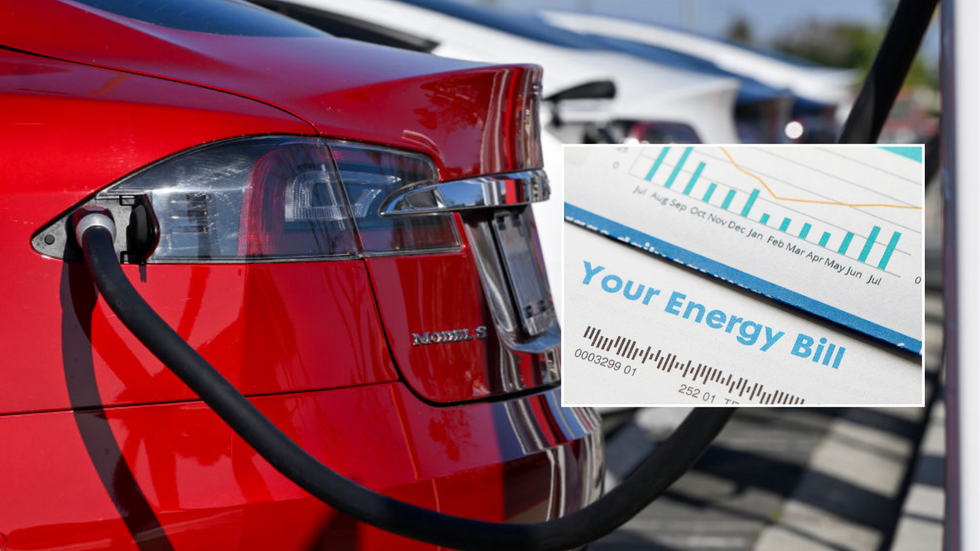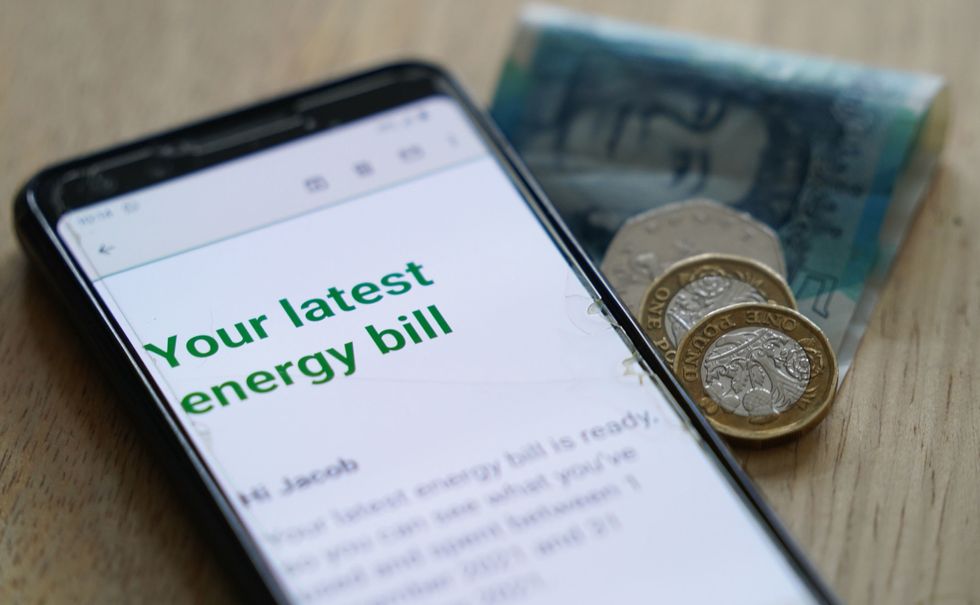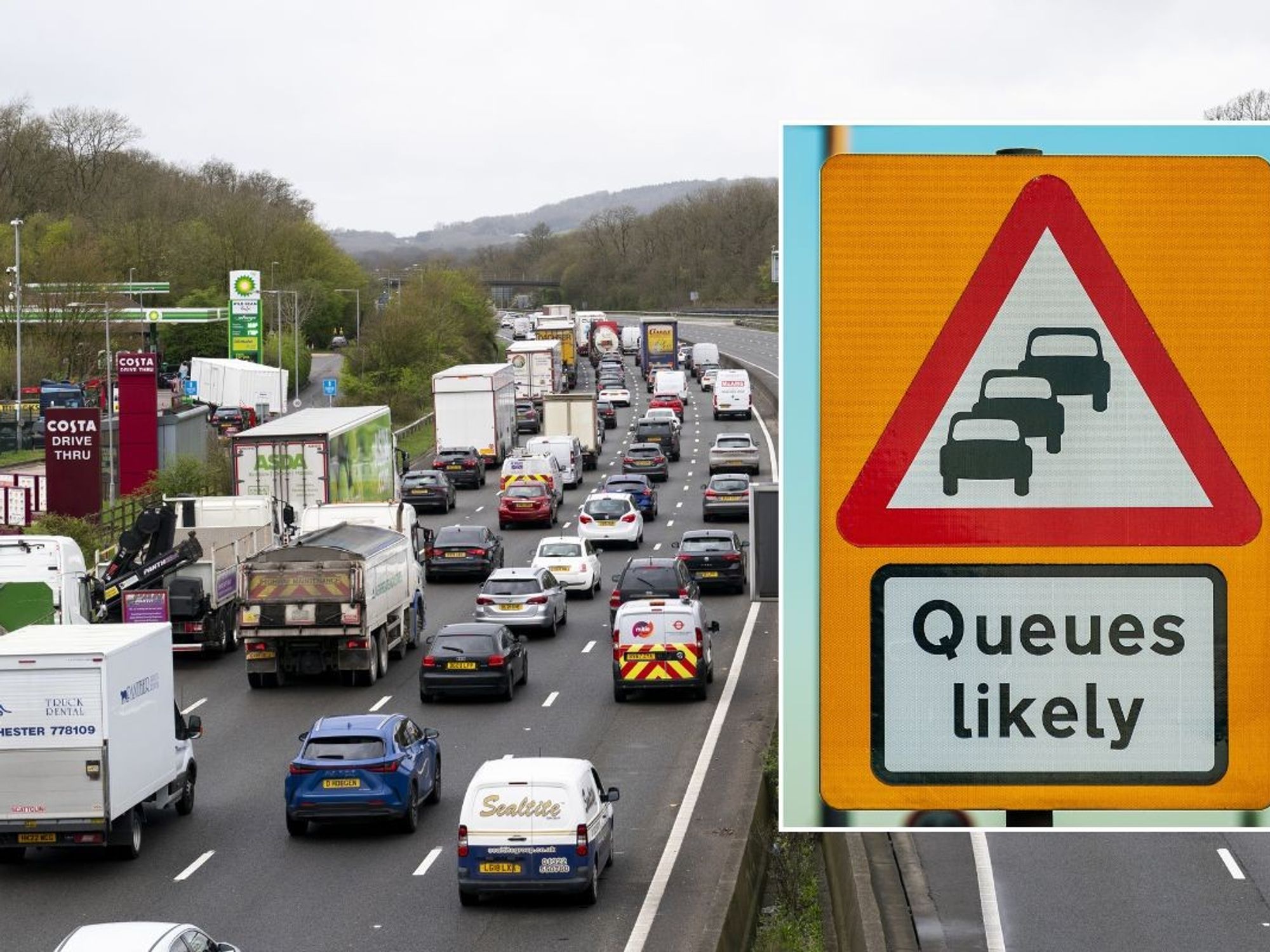WATCH: Motoring expert Fraser Brown comments on electric vehicles and VAT changes
GB NEWS
Ofgem will increase the price cap by 6.4 per cent from April 1
Don't Miss
Most Read
Trending on GB News
Electric vehicle owners are set to face a huge financial hit from tomorrow as Ofgem's energy price cap rises by 6.4 per cent, which will see charging costs rise.
The changes will see Britain's 1.2 million EV drivers collectively spending £35million monthly on charging their vehicles, marking a £2.84million increase from March.
Additionally, electric car drivers will be required to pay Vehicle Excise Duty of £195 annually, ending their previous tax exemption as the Government implements what it calls a "fairer tax system".
The increase in monthly charging cost represents a significant burden for the nation's electric vehicle owners, who are already adjusting to the new economic landscape.
Do you have a story you'd like to share? Get in touch by emailingmotoring@gbnews.uk

Energy bill increases will see drivers pay £1.30 more to charge their vehicles
GETTY
Calculations by Carmoolarevealed the full extent of these rising costs following both Ofgem's updated energy price cap and the Spring Statement announcements.
With the energy price cap set to increase from April 1 until June 30, 2025, EV drivers will be forced to spend more on charging their vehicles at both public charging stations and home chargepoints.
The average price to fully charge an electric vehicle at home chargers will increase from £14.91 to £16.21, representing a £1.30 rise per charge.
This calculation is based on a standard 60kWh battery, with the typical at-home car charger using approximately 108kWh per month.
Aidan Rushby, founder and CEO of Carmoola, commented on the situation: "Ofgem's price cap adjustments impact households across the UK, and while the warmer months may ease the burden of heating and lighting costs, rising energy prices continue to drive up monthly bills for electric vehicle owners.
"Our recent survey revealed that nearly a third of Brits would avoid switching to an EV due to rising energy costs, a figure that's likely to rise following these latest announcements."
He advised electric car owners to "charge at home where possible and check if their energy provider offers off-peak tariffs."
The price cap increase has primarily been driven by a recent spike in wholesale prices, accounting for approximately 78 per cent of the total rise, according to Ofgem.
The remaining 22 per centhas been attributed to a small increase in policy costs and associated inflationary pressures, which have forced energy companies to increase their fees.
For an average household paying by Direct Debit for dual fuel, the new cap equates to £1,849 per year, roughly 9.4 per cent higher than this time last year but still 22 per cent lower than at the height of the energy crisis in early 2023.
Jonathan Brearley, CEO of Ofgem, acknowledged that "no price rise is ever welcome" but noted that Britain's reliance on international gas markets leads to volatile wholesale prices.
Since Ofgem's last price cap announcement in November 2024, four million customers have moved to fixed tariffs. Currently, 11 million people are on fixed energy deals and won't be affected by the price cap change.
LATEST DEVELOPMENTS:
- Labour to confirm phase out of petrol and diesel cars by 2030 this Spring - 'Environmental necessity'
- Electric car switch at risk and UK factories could close without 'substantive' changes - 'Worrying times'
- Drivers could be hit with a £1,000 fine and penalty points for breaking major Highway Code rule

The energy price cap increase will see charging costs rise by £111 for typical households a year
PAThis represents the largest movement of customers coming off the price cap and onto fixed deals since the energy crisis began.
Brearley urged anyone worried about paying their bills to contact their supplier for assistance, adding that "switching or fixing tariffs now could also help to bring costs down".








